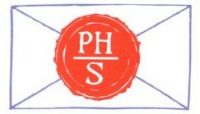Our History and Aims
On 26th September 1936, at the suggestion of Fred Melville, a group of eminent philatelists met at the offices of Robson Lowe. By a unanimous decision The Postal History Society was formed and a small committee appointed to draw up the rules.
The objects of the Society were, and remain, the promotion and encouragement of the study of postal communications, local, national and international, to publish a journal for members and other works relating to postal history.
What is Postal History?
Postal History is the story of written global communication in every form. Clay tablets, papyrus and parchment were the forerunners of today’s e-mail and world wide web.
Because the envelope did not come into general use until the 1840’s, much later in some countries, most early letters were sent as an entire with the address on the outside together with all of the relevant postal markings.
Their contents are therefore retained for posterity, unlike envelopes where more often than not the contents have been discarded over the years. We thus only have the address and postal markings to deduce the sender and destination. These early letters cover every conceivable aspect of life.
Methods of Communication
The letter or envelope can tell the historian whether it was carried on foot, on horseback, by stage coach, railway, ship, balloon, airliner or even pigeon or rocket.
Benefits of Membership
- Monthly Zoom meetings.
- Regular all-day meetings held around the UK
- Our quarterly magazine Postal History
- Annual Conference where members see leading collections and exchange information and socialise
- Annual auction where you can dispose of, and acquire, interesting items for your collection
- Access to our extensive library of reference works
- Books published by the Society and other organisations at discounted prices
- Assistance with the publication of members’ research
- The chance to meet and correspond, both on your particular interests, and to learn more about new topics from experts in a wide range of subjects
